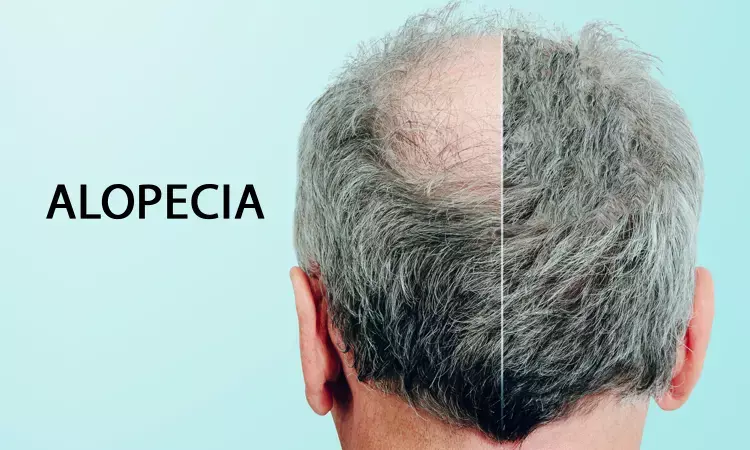- Home
- Medical news & Guidelines
- Anesthesiology
- Cardiology and CTVS
- Critical Care
- Dentistry
- Dermatology
- Diabetes and Endocrinology
- ENT
- Gastroenterology
- Medicine
- Nephrology
- Neurology
- Obstretics-Gynaecology
- Oncology
- Ophthalmology
- Orthopaedics
- Pediatrics-Neonatology
- Psychiatry
- Pulmonology
- Radiology
- Surgery
- Urology
- Laboratory Medicine
- Diet
- Nursing
- Paramedical
- Physiotherapy
- Health news
- Fact Check
- Bone Health Fact Check
- Brain Health Fact Check
- Cancer Related Fact Check
- Child Care Fact Check
- Dental and oral health fact check
- Diabetes and metabolic health fact check
- Diet and Nutrition Fact Check
- Eye and ENT Care Fact Check
- Fitness fact check
- Gut health fact check
- Heart health fact check
- Kidney health fact check
- Medical education fact check
- Men's health fact check
- Respiratory fact check
- Skin and hair care fact check
- Vaccine and Immunization fact check
- Women's health fact check
- AYUSH
- State News
- Andaman and Nicobar Islands
- Andhra Pradesh
- Arunachal Pradesh
- Assam
- Bihar
- Chandigarh
- Chattisgarh
- Dadra and Nagar Haveli
- Daman and Diu
- Delhi
- Goa
- Gujarat
- Haryana
- Himachal Pradesh
- Jammu & Kashmir
- Jharkhand
- Karnataka
- Kerala
- Ladakh
- Lakshadweep
- Madhya Pradesh
- Maharashtra
- Manipur
- Meghalaya
- Mizoram
- Nagaland
- Odisha
- Puducherry
- Punjab
- Rajasthan
- Sikkim
- Tamil Nadu
- Telangana
- Tripura
- Uttar Pradesh
- Uttrakhand
- West Bengal
- Medical Education
- Industry
Baricitinib promising in managing alopecia areata; reports phase 3 clinical trial

In a recent development, results from a phase 3 clinical trial have suggested that baricitinib has demonstrated a statistically significant improvement in scalp hair regrowth compared to those randomized to placebo, meeting the primary efficacy endpoint at Week 36. The study has further confirmed that both the tested doses of once-daily baricitinib 2-mg and 4-mg has proved to be effective.
AA is an autoimmune condition that attacks the hair follicles, causing nonscarring hair loss. AA typically presents as smooth, sharply demarcated, round patches of hair loss without atrophy with "exclamation point hairs" observed on the periphery of the patches. Previous systemic review of the epidemiology of AA indicated a similar worldwide lifetime incidence of around 2%. Some smaller studies indicate a slight female-to-male gender bias, but this may be due to higher female concern regarding hair loss and subsequent treatment. The disorder can occur at any age and the lifetime incidence appears to increase at an almost linear rate
Baricitinib (C16H17N7O2S, formerly LY3009104) is a small molecule reversible Janus‐associated kinase (JAK)‐inhibitor approved in over 65 countries for the treatment of adults with moderate to severe rheumatoid arthritis.
The present study design consisted of a multicenter, randomized, double-blind, placebo-controlled study included 546 adults with a Severity of Alopecia Tool (SALT) score ≥ 50 (i.e., who had ≥50% scalp hair loss) and a current episode of severe AA lasting at least six months but no more than eight years. The study included a diverse patient population from Argentina, Australia, Brazil, China, Israel, Japan, South Korea, Taiwan and the U.S.
Some highlights from the study report has been summerised below,
- Safety outcomes of baricitinib in BRAVE-AA2 were consistent with its established safety profile in patients with rheumatoid arthritis (RA) and atopic dermatitis (AD).
- No deaths, major adverse cardiovascular events (MACE) or venous thromboembolic events (VTEs) were reported in the study.
Dr Satabdi Saha (BDS, MDS) is a practicing pediatric dentist with a keen interest in new medical researches and updates. She has completed her BDS from North Bengal Dental College ,Darjeeling. Then she went on to secure an ALL INDIA NEET PG rank and completed her MDS from the first dental college in the country – Dr R. Ahmed Dental College and Hospital. She is currently attached to The Marwari Relief Society Hospital as a consultant along with private practice of 2 years. She has published scientific papers in national and international journals. Her strong passion of sharing knowledge with the medical fraternity has motivated her to be a part of Medical Dialogues.
Dr Kamal Kant Kohli-MBBS, DTCD- a chest specialist with more than 30 years of practice and a flair for writing clinical articles, Dr Kamal Kant Kohli joined Medical Dialogues as a Chief Editor of Medical News. Besides writing articles, as an editor, he proofreads and verifies all the medical content published on Medical Dialogues including those coming from journals, studies,medical conferences,guidelines etc. Email: drkohli@medicaldialogues.in. Contact no. 011-43720751


